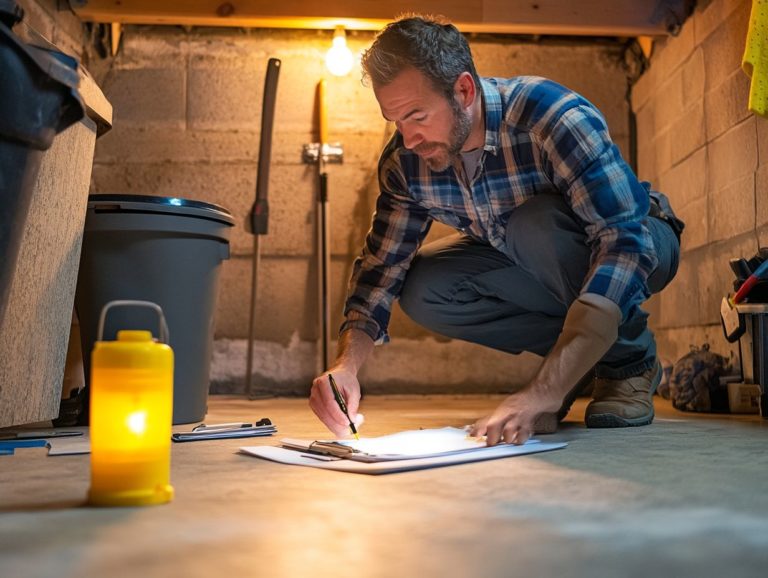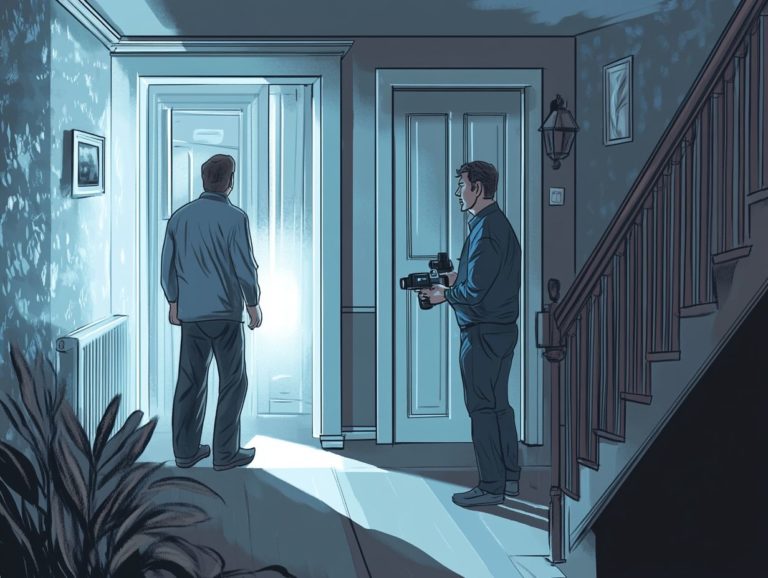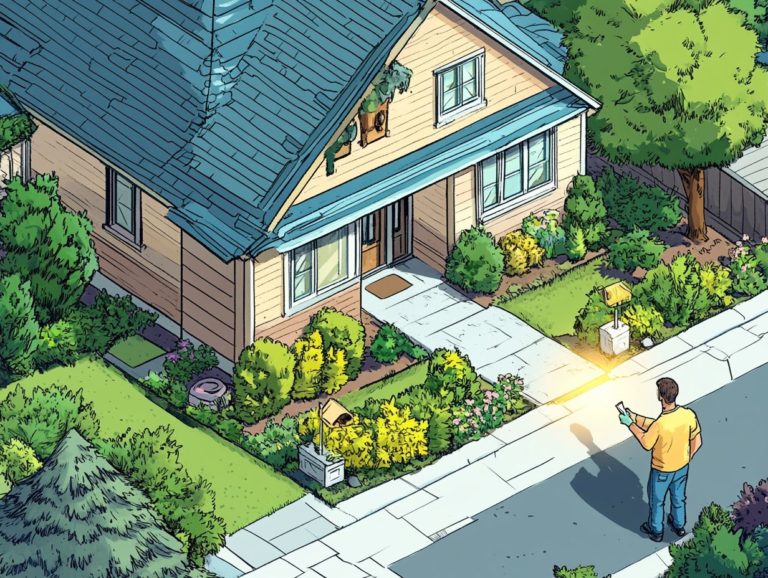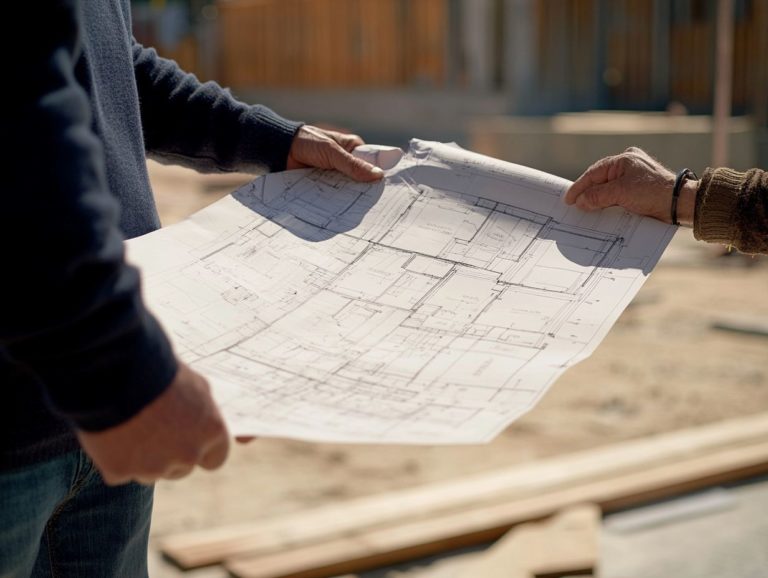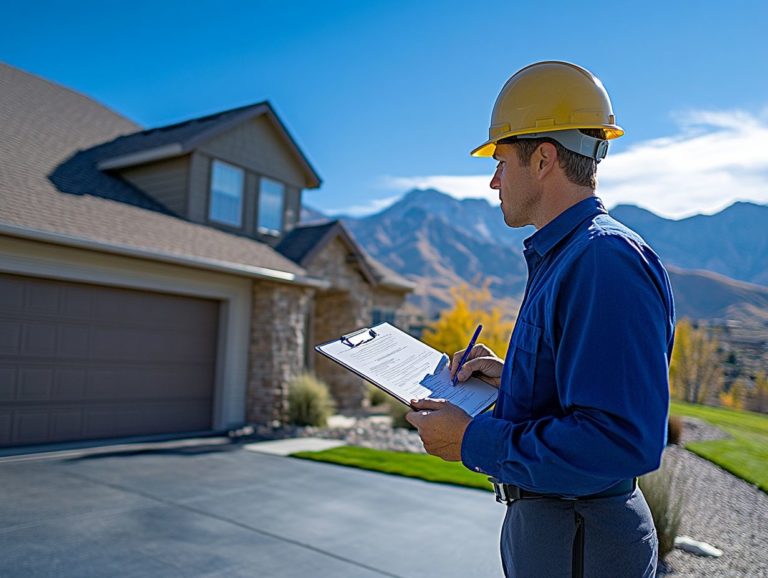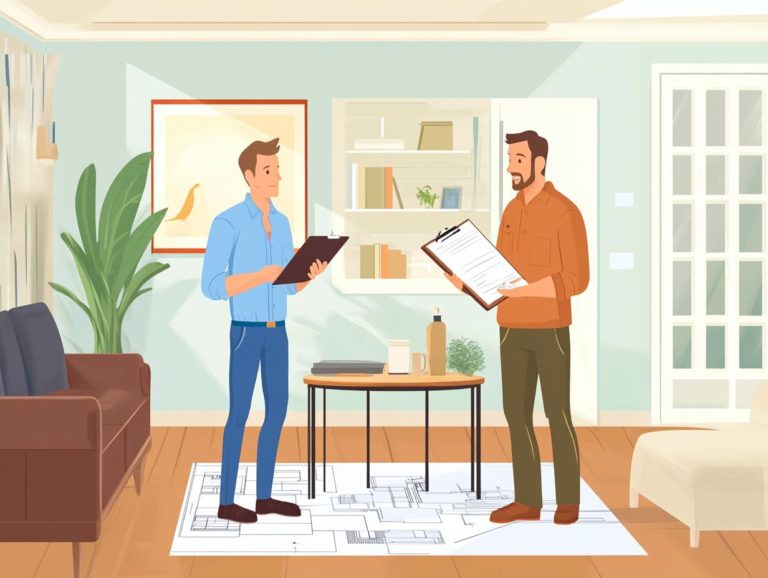The Cost of Home Inspections: What You Should Know
Buying a home is an exhilarating journey, but it also brings a host of responsibilities, particularly when it comes to ensuring that your investment is sound.
One critical step in this process is the home inspection a thorough evaluation that can save you from future headaches and costly repairs.
This guide delves into the essentials of home inspections, highlighting their benefits, the factors influencing costs, and what you can expect during the process.
Whether you’re a first-time buyer or a seasoned homeowner, grasping these elements will empower you to make informed decisions with confidence.
Contents
- Key Takeaways:
- Understanding Home Inspections
- The Importance of Home Inspections
- Factors Affecting the Cost of Home Inspections
- What to Expect During a Home Inspection
- How to Choose a Home Inspector
- Frequently Asked Questions
- What does a home inspection cost?
- Do I need to pay for a home inspection if I’m buying a brand new home?
- Can I negotiate the cost of a home inspection?
- Are there any additional costs I should be aware of when getting a home inspection?
- What happens if the home inspection reveals major issues?
- Is a home inspection worth the cost?
Key Takeaways:
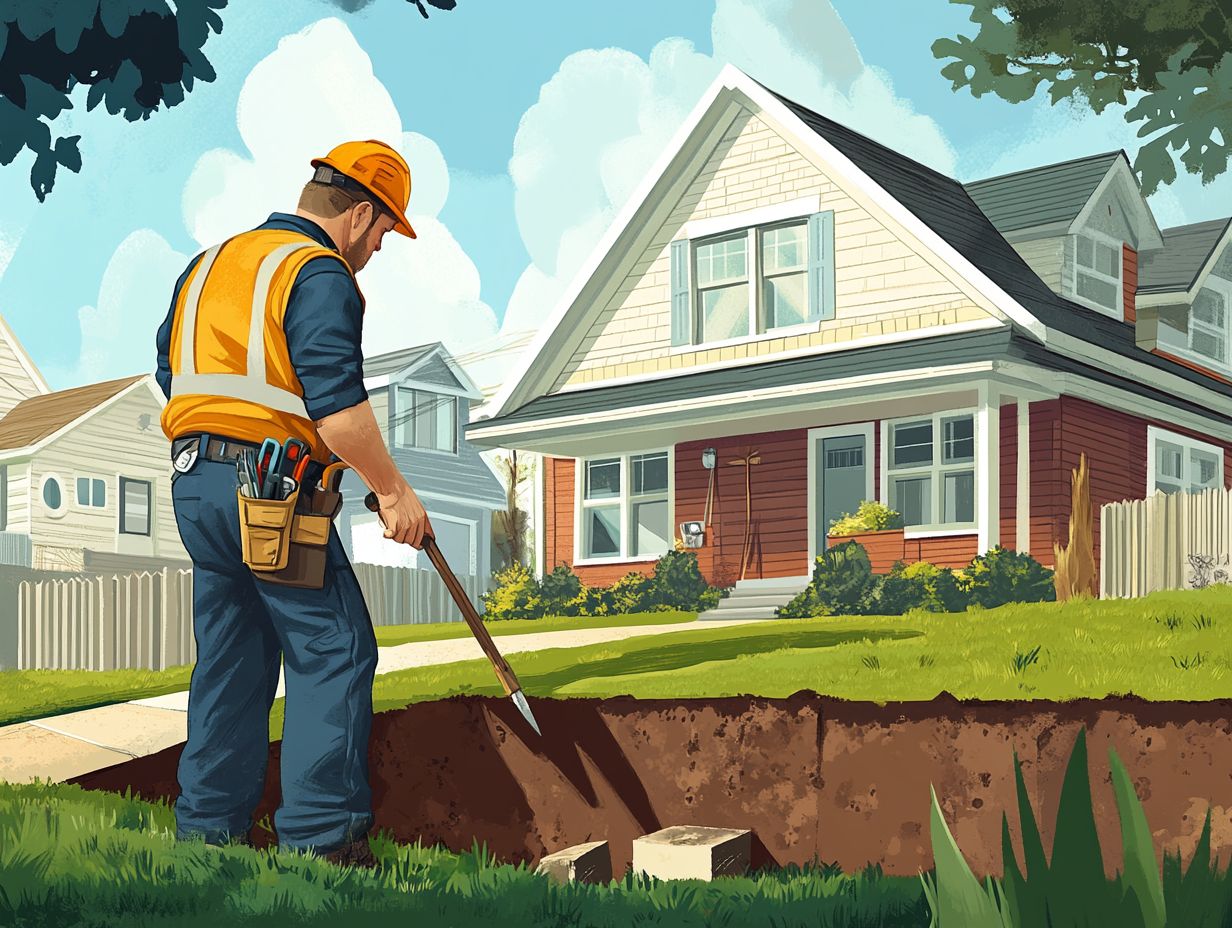
Home inspections are a crucial step in the home buying process, providing valuable information on the condition of a property and potential issues that may impact its value and safety.
The cost of a home inspection can vary based on factors such as the size, age, and location of the home, as well as any additional services requested. Understanding home inspection fees and costs will help you research and compare prices from different inspectors, allowing you to find the best fit for your needs and budget.
When choosing a home inspector, consider their qualifications, credentials, and references to ensure they have the necessary expertise to conduct a thorough and accurate inspection of your potential home.
Understanding Home Inspections
Understanding home inspections is essential to your home-buying journey. They offer invaluable peace of mind by assessing the property’s condition.
When an experienced inspector performs a thorough inspection, they can reveal potential issues like structural concerns, electrical deficiencies, plumbing problems, and HVAC (heating, ventilation, and air conditioning) complications.
This knowledge gives you the power to make informed decisions before committing to what is often one of the most significant investments of your life.
What is a Home Inspection?
A home inspection is a detailed check of a home’s main systems, including the foundation, electrical, plumbing, and HVAC systems, all conducted by a licensed inspector.
During this thorough process, the inspector meticulously examines each component, employing specialized tools to uncover any signs of structural defects, such as cracks in the foundation or outdated wiring.
They pay close attention to issues that could impact the home s safety, functionality, or overall value, like water damage or mold.
Upon completion, the inspector generates a comprehensive inspection report that summarizes their findings. This crucial document serves as an invaluable resource for both potential buyers and sellers.
It highlights areas requiring immediate attention and aids in negotiating repairs or price adjustments, giving you the power to make informed decisions about your property.
The Importance of Home Inspections
The significance of home inspections cannot be understated. They equip you, as a homebuyer, with essential insights into the property’s condition and any potential issues lurking beneath the surface.
This crucial step helps you feel secure as you navigate the home buying journey.
Benefits of Getting a Home Inspection
Getting a home inspection presents you with numerous advantages, foremost among them being the peace of mind it brings. It identifies potential problems with critical systems like plumbing, electrical, and structural components.
This thorough examination uncovers existing issues and reveals hidden concerns that could escalate if overlooked. By understanding the current condition of these essential systems, you gain leverage to negotiate necessary repairs with sellers, potentially saving yourself thousands in future expenses.
A comprehensive inspection report equips you with vital knowledge that reassures your long-term safety and protects the value of your investment.
Ultimately, it gives you the power to make informed decisions, ensuring that what you’re purchasing is not merely a property but a safe and sound home for years to come.
Factors Affecting the Cost of Home Inspections
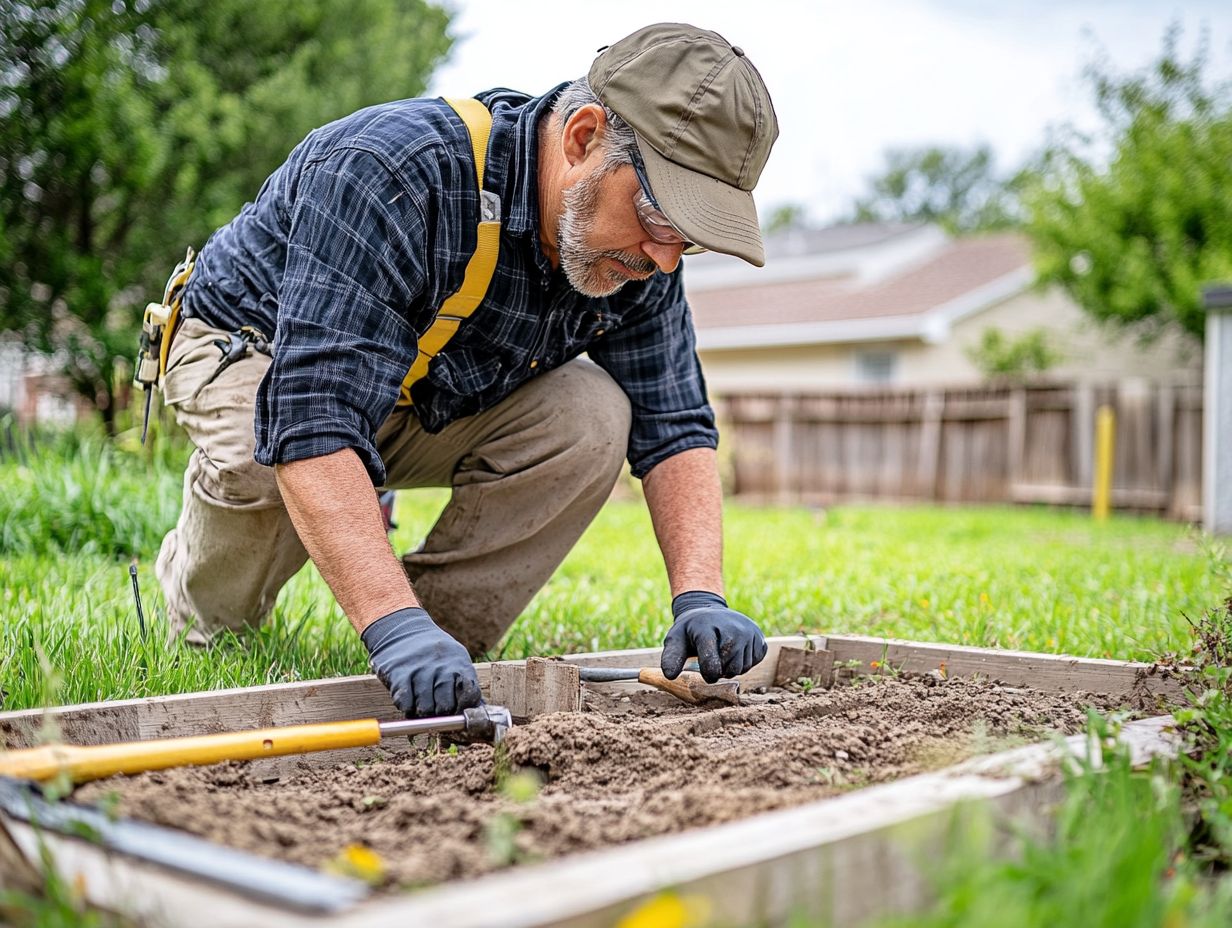
Several factors can significantly influence the cost of home inspections. The average cost varies based on the size and age of your home. For a deeper insight, check out understanding home inspection cost factors, as licensed inspectors set specific fees for their services.
Extra services you request will impact the final price.
Size and Age of the Home
The size and age of your home are key factors influencing inspection costs. For a deeper insight, refer to understanding home inspection fees, as larger properties or older homes typically require more thorough evaluations by experienced inspectors.
A larger residence means more elements to examine, from foundational aspects to complex plumbing systems. If your home has stood for decades, it may hide issues like outdated electrical wiring or weakening support beams, complicating the inspection process.
Home appraisals reflect these complexities, often leading to higher costs and longer inspections. Older homes may introduce unique challenges, such as outdated materials or code violations, requiring specialized expertise for a comprehensive evaluation.
Hiring professionals who grasp these details is a smart move!
Location and Accessibility
Location and accessibility play a pivotal role in home inspection costs. Properties in urban hotspots like Dallas or Fort Worth often have different fees compared to those in suburban areas like Plano or Frisco, making it essential to understand the home inspection process for accurate budgeting.
The ever-changing market conditions in North Texas add another layer of complexity. In densely populated urban areas, the abundance of homes can spur competitive pricing among inspection services. Conversely, suburban regions may have fewer providers, which can drive up costs due to limited availability. It’s crucial to understand the home inspection process to navigate these challenges effectively.
Proximity to major transportation routes affects fees and impacts the response times of inspection professionals. As you explore various neighborhoods, consider how these geographical elements influence both pricing and the range of inspection services available to you.
Additional Services
Additional services, such as specialized inspections for Heating, Ventilation, and Air Conditioning (HVAC) systems, radon, asbestos, and plumbing issues, can significantly elevate overall inspection costs.
These targeted assessments are vital for understanding a property’s condition and uncovering hidden risks that a standard inspection might miss.
For example, a detailed HVAC inspection can reveal inefficiencies or hazards that could lead to expensive repairs later. Likewise, radon and asbestos inspections are crucial for ensuring the health and safety of occupants, especially in older homes.
Don’t overlook the value of these extra inspections! They can save you from costly surprises later on. This proactive approach not only safeguards your investment but also enhances the property’s long-term value.
What to Expect During a Home Inspection
During a home inspection, anticipate a meticulous evaluation process that includes a thorough assessment of all major systems.
Expect a detailed report outlining findings and a comprehensive checklist guiding the inspector’s observations, ensuring nothing is overlooked.
The Inspection Process
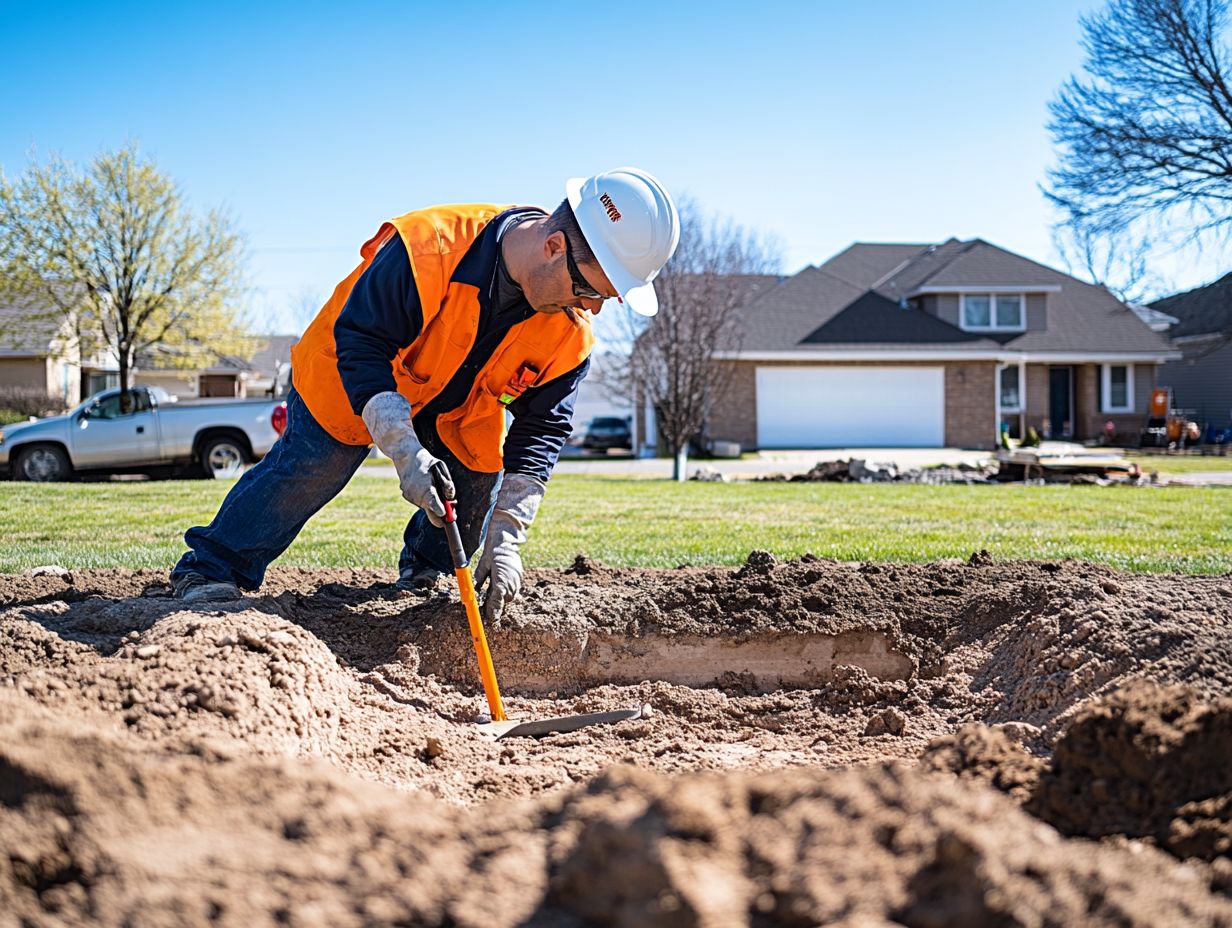
The inspection process is a meticulous evaluation conducted by a qualified home inspector who examines the property’s major systems, identifies potential issues, and documents findings for your benefit as a homebuyer.
During this thorough assessment, the inspector focuses on critical components like the roof, HVAC systems, plumbing, and electrical systems. Each major system is carefully scrutinized for functionality, safety, and compliance with local codes.
Inspectors will look for leaks in the plumbing, assess the condition of the wiring, and evaluate the roof’s overall structure. They utilize a comprehensive checklist to pinpoint deficiencies or areas needing attention, ensuring all visible and accessible elements are meticulously reviewed.
This structured approach gives you the power to make informed decisions about your prospective investment, providing the confidence you need in your home-buying journey.
How to Choose a Home Inspector
Choosing the right home inspector is vital for a thorough check of your property. It’s important to consider their qualifications, credentials, and references from past clients.
Investing time in this process provides the confidence that your property is being assessed with care and expertise.
Qualifications and Credentials
A licensed inspector must have the relevant qualifications and credentials that showcase their expertise and commitment to industry standards. These qualifications often include certifications from reputable organizations like the American Society of Home Inspectors (ASHI) or the International Association of Certified Home Inspectors (InterNACHI).
A strong foundation in construction, engineering, or related fields boosts their proficiency. Experienced inspectors typically join training programs to stay updated with the latest building codes and safety regulations.
Holding a valid state license is essential, reflecting dedication to professionalism. As a homebuyer, prioritizing these credentials ensures a thorough and reliable evaluation of your potential investment.
Frequently Asked Questions
What does a home inspection cost?
The cost of a home inspection varies based on location, size, and age of the home. On average, expect to pay between $300 and $500. Understanding the cost-effectiveness of home inspections can help you make an informed decision. Act fast to secure a reliable inspector!
Do I need to pay for a home inspection if I’m buying a brand new home?
Yes, it’s still recommended to have a home inspection done on a brand new home. While builders may offer warranties, a home inspection can uncover potential issues to address before closing.
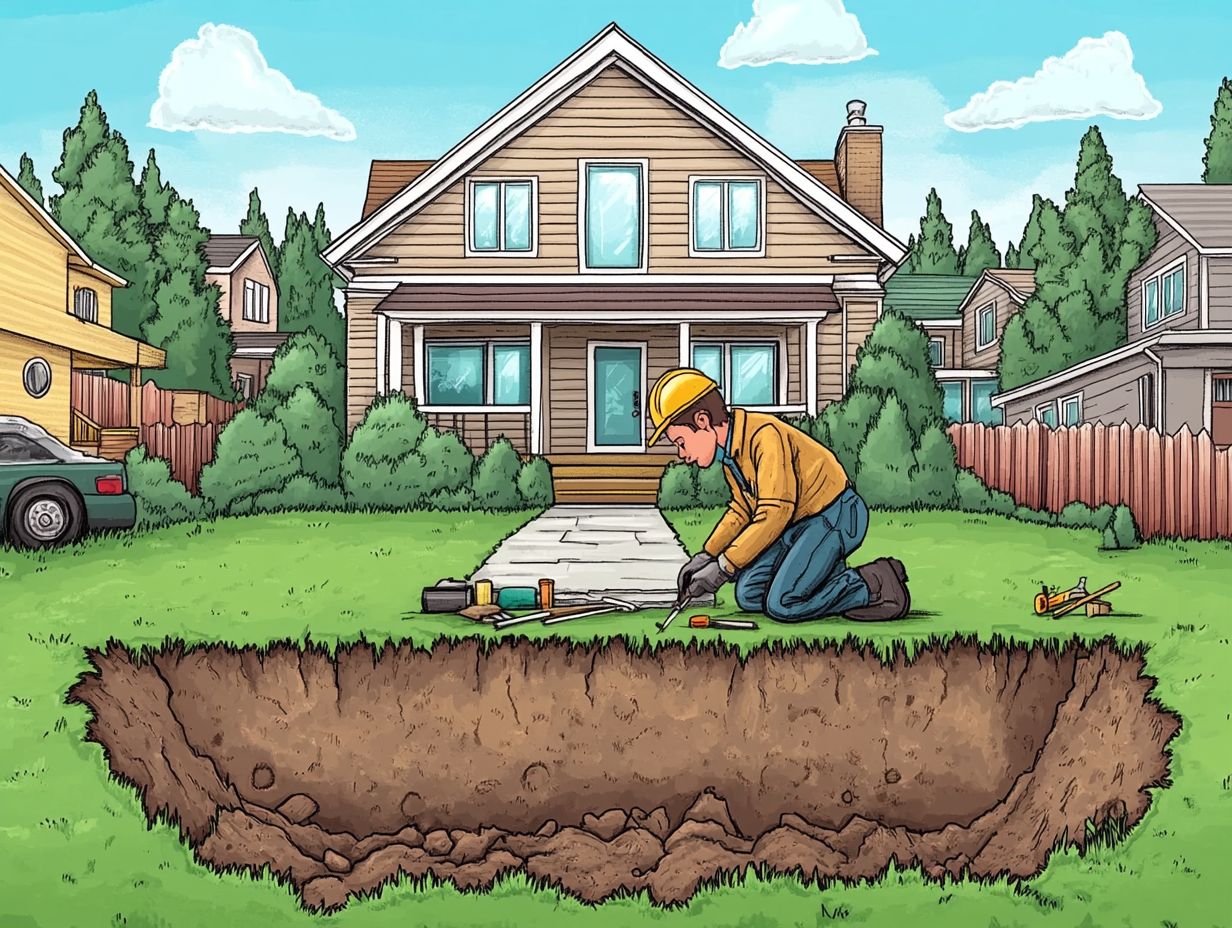
Can I negotiate the cost of a home inspection?
While the cost of a home inspection is usually non-negotiable, you can shop around and compare prices from different inspection companies. For more insights, check out understanding home inspection costs. Remember, a lower cost may indicate a lower quality inspection.
Are there any additional costs I should be aware of when getting a home inspection?
Some home inspectors may charge extra for services like inspecting pools, septic systems, or radon testing. It’s crucial to clarify what to know about home inspection policies and any additional fees beforehand.
What happens if the home inspection reveals major issues?
If major issues are found during the inspection, you can negotiate with the seller to either fix the problems or lower the home price. If the seller is unwilling to negotiate, you may choose to walk away from the sale.
Is a home inspection worth the cost?
Absolutely! A home inspection can uncover potential problems, allowing you to address them before finalizing the purchase. It also provides peace of mind and can save you money in the long run by avoiding costly repairs.
Don’t wait! Schedule your home inspection today for peace of mind.

